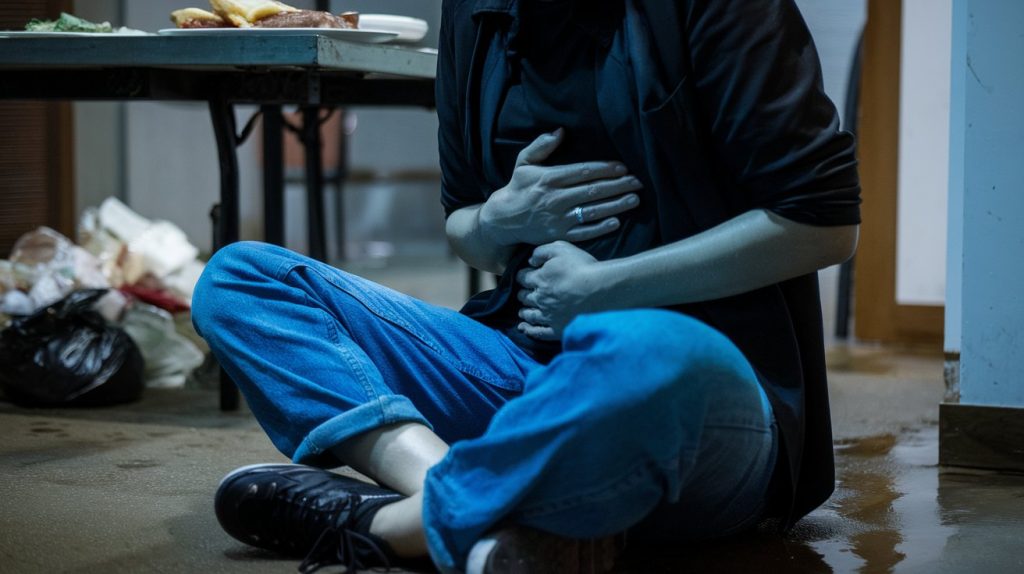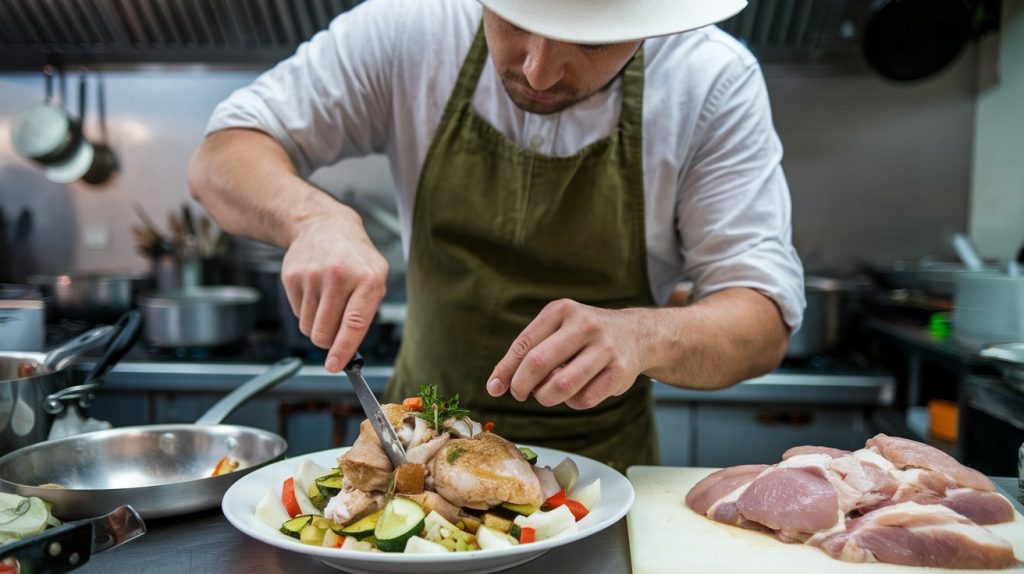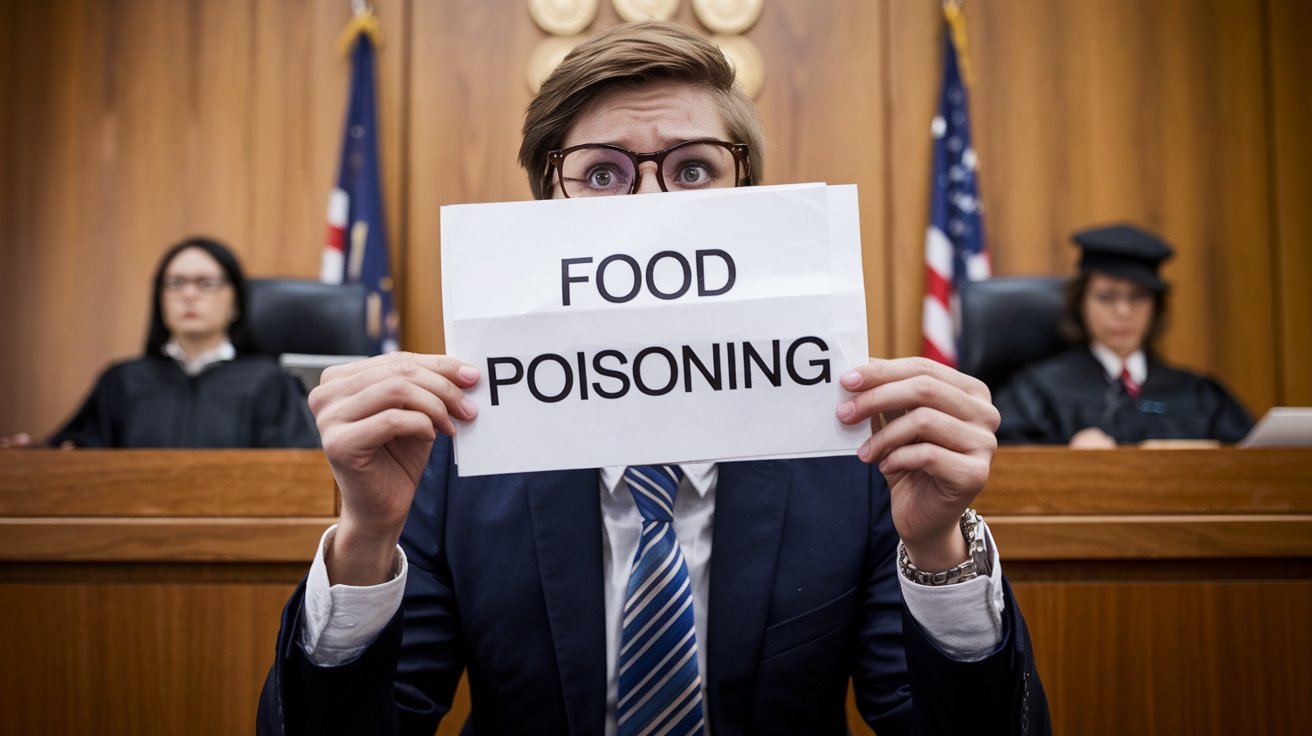Table of Contents
Food poisoning can be a miserable experience, causing pain, discomfort, and even severe health complications. But did you know that you might be entitled to compensation if the cause of your illness was someone else’s negligence?
Can you sue for food poisoning? Yes, you absolutely can, but it depends on several factors. In this article, we’ll guide you through determining if you have a winning case and the steps you can take to pursue justice.
Understanding Food Poisoning: What Is It and How Does It Happen?
What Is Food Poisoning?
Food poisoning occurs when you consume contaminated food or drink that contains harmful bacteria, viruses, or toxins. Symptoms can range from mild stomach discomfort to life-threatening complications. Familiar sources of food poisoning include undercooked meat, raw seafood, unwashed produce, and expired products.
Causes of Food Poisoning: Who Is Responsible?
When asking, “Can you sue for food poisoning?” It’s important to understand where responsibility lies first.
- Restaurants and Food Establishments: Poor hygiene, improper cooking, and cross-contamination can lead to foodborne illnesses.
- Grocery Stores and Suppliers: Expired or improperly stored products can result in dangerous pathogens.
- Food Manufacturers: Contaminated ingredients during production can taint entire batches of products, potentially leading to various types of food poisoning.
Identifying the source is crucial in determining who is liable for your lawsuit.
Can You Sue for Food Poisoning? Understanding Your Legal Rights

When Can You Sue for Food Poisoning?
Not all cases of food poisoning result in legal action, but consulting a personal injury lawyer can help determine your options. To successfully sue, you need to prove that:
- The Food Was Contaminated: You must show that your food was contaminated.
- The Contamination Caused Your Illness: Your medical records and diagnosis must link your symptoms to the contaminated food.
- Negligence Was Involved: The contamination must be due to someone’s negligence—be it a restaurant, supplier, or manufacturer.
What Makes a Winning Case?
The question “Can you sue for food poisoning?” depends on several factors that contribute to a solid personal injury lawsuit:
- Proof of Contamination: Can you prove that the food was contaminated? Lab tests and medical records are crucial.
- Proof of Consumption: Can you prove that you ate the contaminated food? Receipts, witness statements, or even photos can be valuable.
- Proof of Negligence: Can you demonstrate that the responsible party failed to follow proper food safety practices?
The more evidence you gather, the stronger your case becomes.
Steps to Take If You Suspect Food Poisoning
- Seek Medical Attention Immediately
Your health is the priority, and if you experience symptoms of food poisoning, contact a personal injury lawyer for guidance. If you suspect food poisoning, visit a healthcare provider right away. Proper diagnosis is essential; your medical records will serve as evidence in your case.
- Document Everything
Documentation is critical to successfully suing for food poisoning. Keep all medical records, receipts from the food establishment, and even photos of the food, if possible. Gathering this information strengthens your claim.
- Report the Incident
File a report with your local health department. They may investigate the establishment to identify if other cases of food poisoning have been reported. This report can provide additional support to your lawsuit.
- Consult a Lawyer
Hiring a personal injury attorney who specializes in foodborne illness cases is vital. They can evaluate your situation and guide you on how to proceed, ensuring you have the best chance of winning your case.
Who Can You Sue for Food Poisoning?
Restaurants and Cafés
Restaurants are common defendants in food poisoning cases. It can be held liable if a restaurant serves contaminated food due to poor hygiene or improper storage.
Food Manufacturers
Manufacturers must guarantee the safety of their products for human consumption, especially when it comes to types of food that can cause illness. If contamination occurs during production, they may be held accountable.
Grocery Stores and Suppliers
Grocery stores must ensure that the products they sell are fresh and safe. You can sue them for negligence if they sell expired or tainted products.
Caterers and Event Organizers
Catering services are also liable if they provide unsafe food at an event, whether it’s a wedding, party, or corporate function.
Common Challenges in Suing for Food Poisoning
Proving Contamination
One of the biggest challenges is proving the food was contaminated when consumed. Contamination could occur at any stage, making it difficult to pinpoint the exact source.
Establishing Causation

You must prove that your illness directly resulted from the contaminated food. If there are other factors, such as pre-existing conditions, the defense may argue that those caused your symptoms.
Time and Resources
Lawsuits can be lengthy and expensive. It would help if you weighed the potential compensation against the time, stress, and legal fees involved.
What Compensation Can You Expect?
Medical Expenses
Compensation may cover hospital visits, tests, treatments, and any future medical care related to food poisoning.
Lost Wages
If your illness caused you to miss work, you can claim lost income. Severe cases leading to long-term health issues may qualify for future wage loss compensation.
Pain and Suffering
You may also be compensated for the physical pain, emotional distress, and diminished quality of life caused by food poisoning.
Punitive Damages
In extreme cases where the responsible party’s actions were particularly negligent or malicious, punitive damages may be awarded to deter similar behavior in the future.
How Long Do You Have to Sue for Food Poisoning?
Statute of Limitations
The timeframe you must file a lawsuit varies depending on your location. Typically, you have between one and three years to file your claim. You might not be able to pursue compensation if you miss this deadline.
Preserving Evidence
Acting quickly is essential because evidence can degrade or disappear over time, especially in cases involving the Centers for Disease Control and Prevention. Collect all documents, samples, and witness statements as soon as possible.
Also read: Can You Wear Daily Contacts More Than Once? Exciting Benefits Uncovered!
So, can you sue for food poisoning? Absolutely! However, winning a case requires solid proof, legal expertise, and prompt action. If you or a loved one has suffered due to contaminated food, understanding your rights and the legal process is the first step to securing the compensation you deserve.




